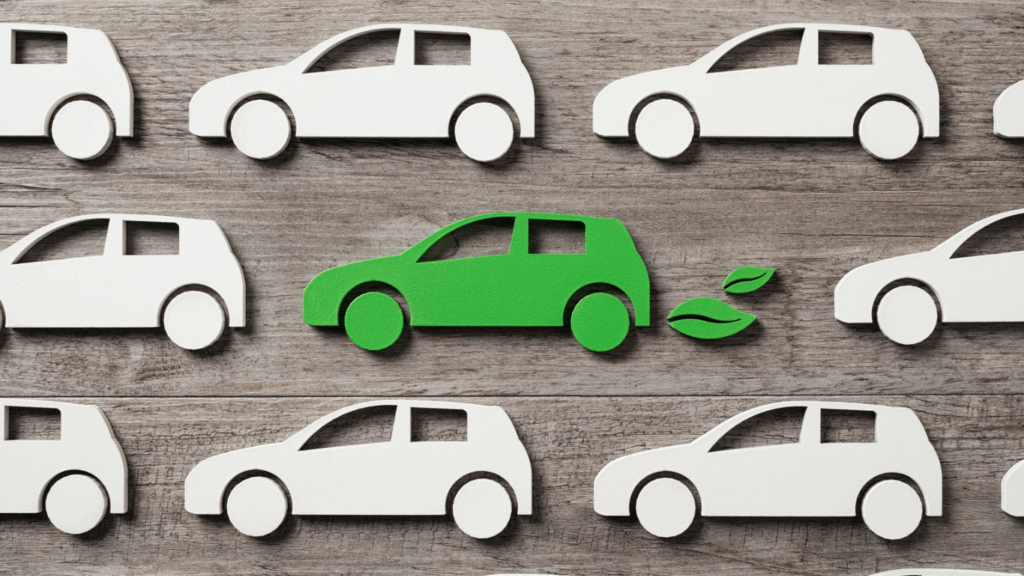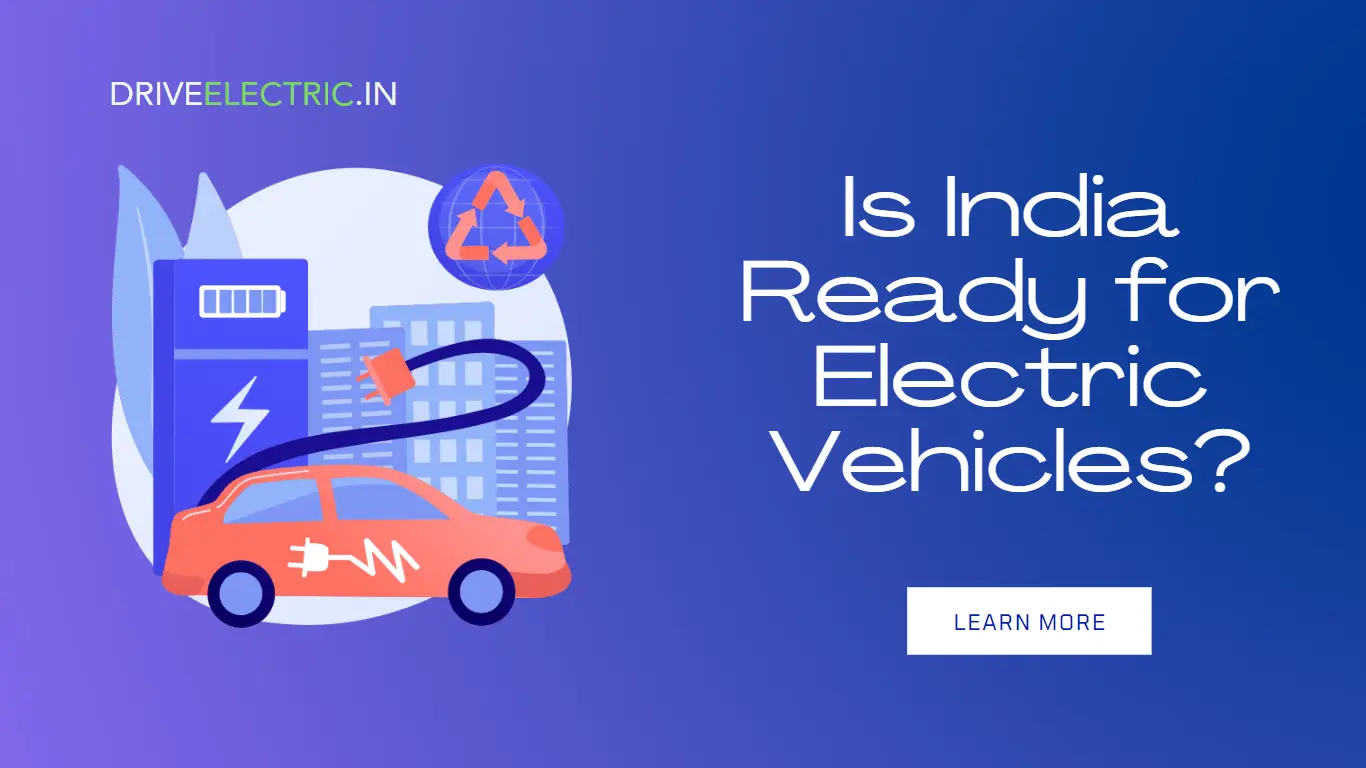Discover India’s readiness for electric vehicles. Explore government initiatives, industry growth, and the potential of EVs to transform mobility.
Electric Vehicles (EVs) are the future of transportation and an emerging solution to reducing the harmful effects of fossil fuels on our environment. As one of the largest automobile markets in the world, India has taken steps toward embracing this positive change. However, the question remains: “How ready is India for Electric Vehicles?”
Keeping in mind the Indian population and its demographic the transition towards using Electric Vehicles is a challenge. Well, it is true that Electric Vehicles are too expensive for the average Indian however mass production and healthy competition will cut down the costs in the coming days.
In this article, we delve into the current state of EVs in India and the challenges that must be addressed to accelerate India’s transition toward a greener tomorrow. Join us as we explore the potential of EVs in India and the ways in which we can work towards a cleaner, sustainable future.
Introduction to EVs in India
Electric vehicles in India have been around for a few years now. The Government of India has been pushing for the adoption of EVs, and the National Electric Mobility Mission Plan was launched in 2013 to support the electric vehicle industry. However, the adoption rate of EVs in India has been slow.
Some reports speculate that India is set to miss its target of achieving 30% electric vehicle penetration by 2030. However, keeping in mind the volatility of the Indian market it is really hard to predict the EV of the future given that the Indian public is slowly accepting EVs and looking at them as an alternative to gasoline-based vehicles.
Current State of EVs in India

The Indian EV Market
The Indian EV market is still in its infancy. According to a report, the total EV market in India stood at 3,600 units in 2016. This number increased to 56,000 units in 2018, but it is still a small fraction of the total automobile market in India.
In the current times, electric vehicle (EV) sales in India have reached an impressive 1.16 million units in the fiscal year 2023, with 100,000 units sold for six consecutive months. The EV industry has seen a remarkable 154% year-on-year growth, driven by increasing demand.
Of the total sales, over 716,000 two-wheelers and 397,429 three-wheelers were sold, indicating a surge in demand for electric bikes and rickshaws. The demand for electric cars and buses has also seen a notable rise, highlighting the growing awareness and acceptance of EVs among the Indian population.
Infrastructure and Charging Stations
One of the biggest challenges to the adoption of EVs in India is the lack of charging infrastructure. There are only a few charging stations available in the country, and most of them are located in major cities. This lack of infrastructure makes it challenging for EV owners to travel long distances.
To address this, the Indian government has set an ambitious target of installing 400,000 charging stations across the country by 2026. Currently, several private companies have already set up charging stations in major cities, while state-run companies are also stepping up their efforts.
Moreover, several startups have also entered the market with innovative charging solutions to make EV charging more accessible and convenient for users. While the infrastructure is still in the early stages of development, the progress made so far is promising and lays the foundation for a cleaner, greener future of mobility in India.
Cost of EVs in India
Another challenge for the adoption of EVs in India is the high cost of EVs. Electric vehicles are significantly more expensive than their gasoline counterparts. For instance, the Mahindra e-Verito, an electric sedan, costs around INR 10-12 lakhs, while the older gasoline variant of similar make costs around INR 8 lakhs.
The cost of electric vehicles (EVs) in India has been a major factor hindering their widespread adoption. However, with advancements in technology and increasing government incentives and subsidies, the prices of EVs in India have been gradually declining.
The introduction of more affordable EV models, such as electric two-wheelers and three-wheelers, has also contributed to making EVs more accessible to the Indian population. With the growing demand for EVs and the continued efforts of the Indian government to promote electric mobility, it is expected that the cost of EVs in India will continue to decrease in the coming years.
Battery Technology
The range of EVs is a crucial factor for consumers. In India, most EVs have a range of around 100-150 km on a single charge, which is not suitable for long-distance travel. Battery technology is evolving, and the cost of batteries is reducing. However, it is still a significant challenge for EV manufacturers to produce batteries that offer a high range at an affordable cost.
Initiatives to Promote EVs in India
FAME India Scheme
The Government of India has launched the FAME (Faster Adoption and Manufacturing of (Hybrid &) Electric Vehicles) India scheme to promote the adoption of EVs. Under this scheme, incentives are provided to EV manufacturers and buyers to increase the demand for EVs in India. The scheme also aims to establish charging infrastructure and provide research and development support to EV manufacturers.
Many Indian states have also launched their initiatives to promote the adoption of EVs. For instance, Delhi has launched the Delhi EV Policy, which aims to ensure that 25% of all new vehicles registered in Delhi are electric by 2024. Similarly, Andhra Pradesh has launched the Electric Mobility Policy, which aims to make the state a hub for EV manufacturing.
Other Notable Initiatives on Electric Vehicles
- Reduction in Goods and Services Tax (GST) on EVs from 12% to 5% to make them more affordable.
- Income tax benefits for buyers of EVs to encourage their adoption.
- Exemption of road tax and registration fees for EVs.
- Subsidies for EV charging infrastructure installation.
- Incentives for the production of EVs and EV components under the National Electric Mobility Mission Plan.
- A mandate for all government departments and public sector enterprises to switch to electric vehicles by 2030.
- Development of green corridors to promote the use of EVs for long-distance travel.
- Setting up EV charging stations at various locations across the country, including petrol pumps, shopping malls, etc.
So, Is India Ready for Electric Vehicles?
This can be answered with a resounding “yes”. With the Indian government’s ambitious plans to promote electric mobility and the growing awareness and acceptance of EVs among the Indian population, the transition towards a greener future is well underway.
While there are challenges that need to be addressed, such as the lack of charging infrastructure and high initial costs, these can be overcome with the right policies and incentives in place. The potential of EVs in India is immense, and their adoption will not only help in reducing air pollution and promoting sustainable mobility but also create job opportunities and contribute to the country’s economic growth.
As the EV industry continues to evolve and innovate, we can look forward to a future where clean and green mobility is the norm, and India leads the way toward a more sustainable tomorrow.

